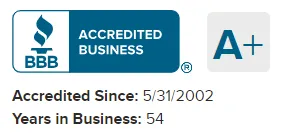Selecting the right pool filter is a critical decision for any pool owner. The clarity and cleanliness of your pool water depend significantly on the type of filter you choose. With various options available, understanding how to choose a pool filter that best suits your needs can seem daunting. This guide aims to simplify the process “how to choose a pool filter,” and will cover everything from the types of pool filters to factors for pool filter selection, providing you with a pool filter buying guide designed to help you make an informed decision.
Choosing The Right Pool Filter:
Understanding Pool Filter Options
Before diving into how to select the perfect pool filtration system, it’s essential to understand the different types of pool filters available. The three most common types are sand filters, cartridge filters, and diatomaceous earth (DE) filters. Each type has its specific advantages, maintenance requirements, and filtration capabilities, which will be crucial in your decision-making process.
Sand Filters
Sand filters are popular for their simplicity and effectiveness. Water is pushed through a bed of sand, trapping dirt and debris before being returned to the pool. They require backwashing to clean the filter, which involves reversing the water flow to flush out contaminants.
Cartridge Filters
Cartridge filters use a paper or fabric-like cartridge to filter out debris. They can capture smaller particles than sand filters and are easier to maintain, as they don’t require backwashing. Instead, the cartridge is removed and cleaned with a hose.
Diatomaceous Earth (DE) Filters
DE filters offer the finest level of filtration, capturing particles as small as 5 microns. They use a natural substance called diatomaceous earth to coat the filter grids, trapping dirt and debris. Like sand filters, DE filters require backwashing for cleaning.
Choosing the Right Pool Filter
When considering how to choose a pool filter, several factors come into play. These include the size of your pool, the amount of maintenance you’re willing to undertake, and your budget. Let’s explore these factors further to help you pick the best pool filter.
Pool Size and Filter Capacity
The size of your pool significantly influences the type and size of the filter you need. Larger pools require filters with higher capacities to efficiently circulate and clean the water. Ensure the filter you choose is rated for your pool’s volume.
Maintenance Requirements
Your willingness to perform regular maintenance is another critical consideration. Sand filters require periodic backwashing, which can be a bit more labor-intensive. Cartridge filters, while easier to clean, may need more frequent replacements. DE filters offer superior filtration but also demand more attention during cleaning and after backwashing, as the DE powder must be replenished.
Budget Considerations
Your budget will also play a role in your decision. Sand filters are generally the most cost-effective option, both in terms of initial investment and ongoing maintenance. Cartridge filters are slightly more expensive upfront but save on water usage since they don’t require backwashing. DE filters, offering the highest filtration quality, are the most expensive choice.
Pool Filter Comparison
When comparing pool filters, consider not just the purchase price but also the long-term costs associated with maintenance and replacement parts. A pool filter comparison should also evaluate the clarity of the water each type can provide and the environmental impact of backwashing and waste.
Factors for Pool Filter Selection
Additional factors to consider in your pool filter selection include the local climate and the amount of debris your pool typically encounters. Pools surrounded by trees or exposed to high winds might benefit from a more robust filtration system, such as a DE filter.
Criteria for Choosing a Pool Filter
The criteria for choosing a pool filter should include:
- Filtration effectiveness
- Maintenance and upkeep
- Cost (initial and ongoing)
- Suitability for your pool’s environment and usage
Tips for Selecting Pool Filtration Equipment
- Assess Your Needs: Consider your pool’s size, location, and how frequently it’s used. Also, think about how much time and money you’re willing to dedicate to maintenance.
- Consult with Professionals: Speaking with pool professionals can provide insights into the most suitable filter types for your area and specific pool characteristics.
- Read Reviews: Look at reviews and testimonials from other pool owners about their experiences with different filter types.
- Consider Energy Efficiency: Some filters, particularly variable-speed pumps for cartridge and DE filters, offer greater energy efficiency, which can save money in the long run.
- Future-Proof Your Purchase: Choose a filter that not only meets your current needs but also has the capacity to handle any planned pool upgrades or increased usage.
Conclusion
Knowing how to choose a pool filter is essential for maintaining a clean, healthy, and enjoyable swimming environment. By understanding the different types of pool filters, considering the factors for selection, and applying the tips provided, you can make an informed decision that aligns with your needs, preferences, and budget. Remember, the right pool filter not only keeps your water crystal clear but also enhances the overall pool ownership experience, ensuring your pool remains a source of pleasure for years to come.






